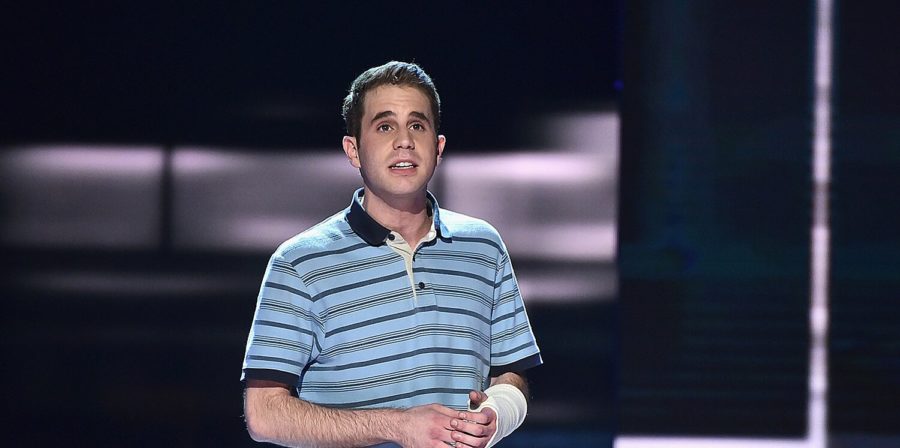Words Fail: Dear Evan Hansen is a Missed Opportunity
Ben Platt performs with the cast of “Dear Evan Hansen” onstage during the 2017 Tony Awards at Radio City Music Hall.
I was so excited about “Dear Evan Hansen“… until I watched it.
Based on the 2015 Tony-award-winning musical of the same name, “Dear Evan Hansen“ chronicles the story of conflicted teenager, Evan Hansen, who struggles to find his place in the world; and when his classmate Connor, played by Colton Ryan, commits suicide, Hansen, played by Ben Platt, is forced to choose between lying his way into a community and risking everything by telling the truth.
Here’s the thing, I feel like I have a responsibility to admit I was a huge fan of the musical. I went to see it my sophomore year of high school; back in 2019, when we could still gather in crowded theaters with hundreds of people we had never met and not risk imminent death. I loved it. I felt for all the characters but mostly, I identified with Zoe, the shy, artistic girl who kept herself isolated from everyone around her.
So, when I sat down to watch the film adaptation of “Dear Evan Hansen“ one Tuesday night, I was excited and admittedly had nothing else to do, so resumed my favorite weeknight activity: bawling my eyes out over fictional characters. But then the movie started and I began to realize as much as I had previously enjoyed the musical, it was not an accurate depiction of the mental health community.
The writers were as misguided as they were in their choice of main character. Although Evan Hansen is a realistic protagonist, he isn’t likeable. I didn’t empathize with him in the way the writers, I’m assuming, intended me to. Instead of painting Evan as the main character, the show could have focused on someone like Alana, the outgoing type-A student struggling with her own mental health. Newsflash fellow Wilton High School students, I think we can all relate.
There’s also the question of representation. Evan depicts the person you generally see when discussing mental illness — male and white — and excludes the complexities of the mental health stigma among minority groups. I mean, there was Alana, but she was not given enough screen time to fully represent her community. Even Zoe, as complex as the movie portrayed her to be, lacked the storyline to convey being a young woman struggling with herself. There wasn’t a shortage of diverse characters; just a shortage of emphasis on them. Unfortunately, this situation is all too common.
Recently, another musical-turned-film-turned-controversy, “In The Heights” was under fire for casting light-skinned minority actors in a film that took place in a predominantly dark-skinned minority neighborhood in Washington Heights. “Dear Evan Hansen,” just like “In The Heights,” was a missed opportunity.
As a teenager who’s had my own set of mental health issues, I feel like I’m waving through a window that the film industry ignores; an open window of missed opportunities. I don’t think “Dear Evan Hansen“ should be written off or disregarded or ignored by any means and even though it was a far cry from the bawling, tissue fest that I was hoping for on a Tuesday night, it was a good start, a good beginning to the conversation.
Dear Evan Hansen…the window’s still open.
Linda Petersen is a senior at Wilton High School. She is honored to be a part of The Forum this year as a staff writer. She is passionate about creative writing and investigative journalism and specializes in opinion pieces.


Lisa Orleman • Oct 30, 2021 at 9:11 am
Well done Linda…
Billik Ann • Oct 29, 2021 at 11:39 am
Magnificent writing! Keep it up! ♥️